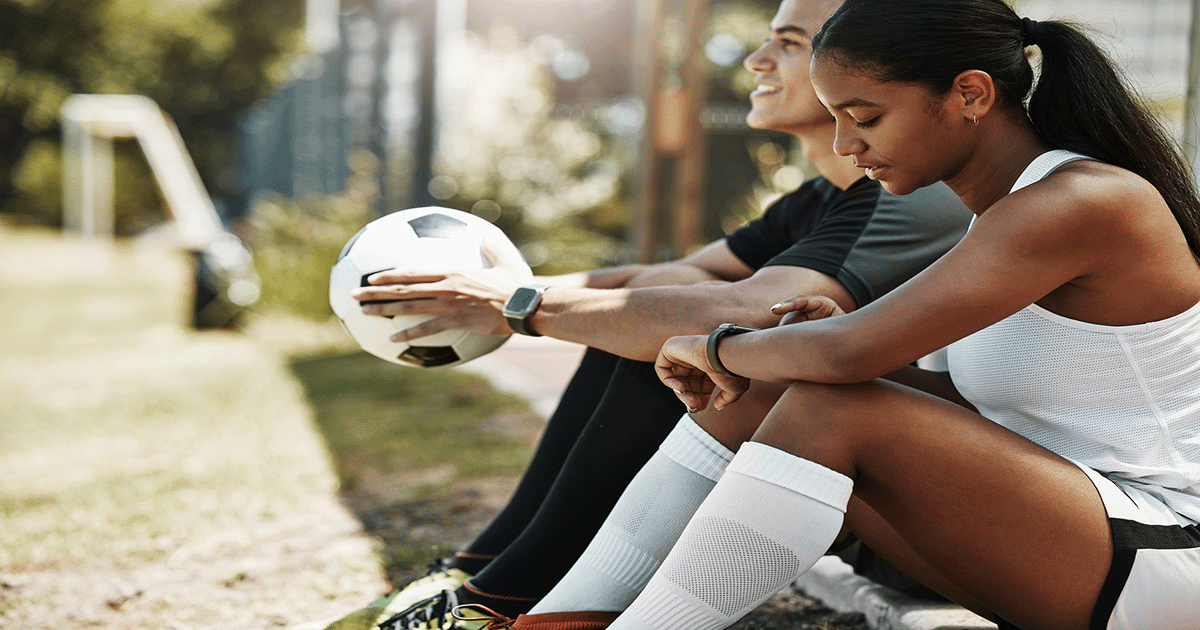Annie Deloid
Union College
January 27th, 2023

A Guide to a Better Athletic Performance
Back when I played volleyball in college- a whopping seven years ago- there was a clear distinction between how we approached practices and games to how they are approached nowadays. I clearly remember having nervous, feeling anxious, and at times getting the “yips” with specific skills leading up to game day. However, unlike now, it was not talked about. Mental mind blocks and internal feelings were just concepts I had hoped would diminish before game days. It is no fault to anyone- the resources and information available (even in 2015) were not what they are now.
To give you a little context- my college experience was great. We were a solid team with expectations to win our conference, but we were also a group that did not take ourselves too seriously and played volleyball for the love of the game. We knew none of us would probably go on to do this as a career (plot twist: I am now a collegiate volleyball head coach), and we always made sure that going to practice was the best part of our day.
Our coaching staff was wonderfully hard on us but always made us feel supported. I distinctly remember a few times in college when teammates or myself broke down mentally and physically. I remember feeling frustrated over not feeling heard as a senior captain and lashing out at my coaching staff. I remember my teammate feeling unvalued due to not getting chances to be an all-around player. I remember another teammate who- despite their best effort- kept missing their serve short in a drill for days because she was overthinking her skill set. Looking back, all of these memories amount to something that can be worked through mentally.
Approaching Issues Differently; Not Personally
I think back to some of these minor issues when I played, and I wonder: how could these issues have been avoided? Well, to be honest, it couldn’t have. They can be approached differently, but as athletes, we go through so much every season of our sports.
Athletics- in particular when you are in high school and college- becomes a part of your identity. You spend countless hours trying to perfect skills, prove yourself to your coaches and teammates, and give up many other things to be a part of a team. The moment you get benched, injured, or don’t start in a game, it becomes personal. What did I do to deserve this? I work so hard- why can’t I be the go-to player? Why is this happening to me?

Flip of Perspective
What athletes need to understand is that as coaches- we try so hard to take away the personal piece. We try our best to do what is best for the entire team. We take a “me” perspective and make it “we”. This is one small piece that can truly help with the mental game- taking the perspective of what the problem is in front of you.
For example, if I was upset with my coach and his decision to bench me in the middle of a game- instead of thinking about how it makes me feel, I should sit back and try to understand why he made the decision that he did. A flip of perspective is something I wish I had thought more about during my career.
Mental Blocks
Another quick example of how mental mind blocks or anxiety can affect your physical performance comes from something very recent. Are any football fans here? If so, you should not be shocked that I will mention the recent drama of the Dallas Cowboys kicker, Brett Maher.
Maher missed an NFL record four extra-point attempts in Dallas’ win over Tampa Bay in the NFL Wild Card round. Viewers from all over the world were bashing Maher, saying he was awful and did not deserve to be the starting kicker of the team. I sat back and watched the drama unfold- but couldn’t help but think Maher was experiencing the “yips”. The yips are basically a mental mind block- your mind telling your body you can’t do something, and your body responds by listening to it.
As I mentioned, I’ve experienced the yips myself and watched many teammates share the same. It is an unexplainable feeling and one of the most challenging things to participate in as an athlete. Is Maher- an NFL kicker with years of experience, playing at the highest level possible, with a high success rate on his career- a BAD athlete? Absolutely not. He went through a mental mind block, and that affected his physical game.
Mental Training to Help Physical Performance
We certainly now understand that multiple things can affect your physical performance- perspective, the yips, anxiety, etc. Now let’s think about some tangible ways that mental training can help your physical performance. A few that I’ve experienced are as follows:
1. Journaling
Journaling is a straightforward tool, but one that can be very effective. At one of my first jobs as a volleyball coach, we had our athletes' journals every Thursday. We gave them prompts that ranged from asking what is essential to them as an athlete to what they want from themselves in the future. This is an easy way to get all your thoughts, and sometimes frustrations, out in the open.
2. Visualization
A visualization is a mental tool that I will always stand by. This is also a way to beat the yips. The more you imagine yourself doing something perfectly, and to the best of your ability, the more your mind believes you can do it. If you spend five minutes before every game imagining how you want to play- you have a much better chance of success than if you do nothing, or have bad vibes going into the match.

3. Sports Psychologist
I know everyone does not have access to a sports psychologist- but even researching some articles that are out in public from professionals can be beneficial. If you can get access to a sports psychologist, it is a great time for you to ask questions on different topics, ask about mental routines, and work through sports-related problems.
4. Self Talk
I felt like I utilized self-talk very well as an athlete. Growing up, I always made sure that I was telling myself that I was good enough to play in high school, good enough to play in college, and eventually good enough to coach my own team. It is always important to build your own self-confidence. You will always be your own most prominent advocate and supporter!
5. Open Communication/ Understanding Your Own Needs
This is one that really came to fruition as a head coach for me. I had multiple student-athletes who expressed their needs to me and told me they always needed an open line of communication. They wanted to know how close they were to break through to the lineup, what they needed to work on, and where they stood (athletically) on the team. While only some coaches will be transparent about everything, I appreciated these students letting me know what they needed from me. If you can express to coaches (or even to yourself) what you really need, it will make your relationships much stronger on and off the court/field.
Mental performance has become such a big part of how our athletes can succeed. It is something that has grown each year, and as coaches, we have put more of emphasis on it. I hope a few of these stories and ideas help you understand how important the mental aspect is to performance! There is no right way to train your mind, but I hope you can take something away from this small guide to better athletic performance.

